The importance of blockchain development in democracies cannot be overstated. Elections provide the right outlet for citizens to shape their future through voicing out their opinion and selecting leaders who they believe will best lead their society going forward. For this to accurately reflect the voice of the people, elections must be safeguarded by integrative mechanisms which sharpen security, transparency and guarantee accuracy with regards to results.
Unfortunately, traditional voting systems have faced obstacles in this regard ranging from security threats to concerns about outright fraud; jeopardising democratic elections if not addressed fastidiously. A solution however arrives with the recent battleground that is blockchain technology. Blockchain development Voting Apps offer promise as a route to seamlessly amalgamate access transparency and election security better than before.
How Blockchain Technology Addresses These Challenges
Blockchain technology, which underpins cryptocurrencies like Bitcoin, has the potential to transform the way elections are conducted. Here’s how it addresses the challenges of traditional voting systems:

Transparency:
Blockchain application development is a decentralised and immutable ledger, making it a reliable technology for voting. Transactions of each voting event are documented on the blockchain, creating a transparent record available to all. Everyone can evaluate and verify that respective votes were correctly registered towards the final count, thereby reinforcing credibility in electoral affairs.
Security:
Blockchain has renowned security measures that make sophisticated data manipulation difficult for malicious actors. It is nigh impossible for a hostile force to tamper or distort any votes registered in the blockchain due to its mechanisms. Its highly safe protocol requires compromising a majority of network participants’ consent, forming a protective barrier against fraudulent practices. Because no individual operates it alone, maintaining records becomes resilient and robust.
Efficiency:
Blockchain voting eliminates the need for manual vote counting and verification, streamlining the election process. Results can be available almost instantly after voting concludes, reducing the potential for disputes.
Accessibility:
Blockchain voting apps can be designed to accommodate a wide range of accessibility needs. For example, they can include features like voice commands or screen readers for visually impaired voters, making elections more inclusive.
Cost-Effective:
While implementing blockchain voting systems may require an initial investment, they can ultimately reduce the long-term costs associated with traditional elections. The elimination of physical infrastructure and the need for fewer personnel can result in significant savings.
Challenges and Concerns
While blockchain application development offer exciting possibilities for improving the electoral process, they are not without their challenges and concerns:
Identity Verification:
Blockchain-based identity verification systems, though in the early stages of development, offer promising potential for substantially heightening protection of voter information while still ensuring fast results. However, at this moment the blockchain industry needs to progress further with integrity validation techniques which can accurately secure voting records in tandem with anonymously protecting user data.
Scalability:
Blockchains have the distinct potential for being used in voting scenarios, such as national elections. Yet this technology is met with challenging scalability issues when handling a significant processing load of transactions. To ensure blockchain adoption from government entities and their public, meaningfully addressing this scalability problem is critical now more than ever.
Privacy:
Balancing the transparency of the blockchain with the need to protect voter privacy is a delicate task. Some blockchain voting apps use cryptographic techniques to anonymize votes while preserving their integrity.
Regulatory Hurdles:
Many countries have complex election regulations that may need to be adapted to accommodate blockchain voting. Regulatory uncertainty can hinder adoption.
The Future of Transparent and Tamper-Proof Elections
Here are some key considerations for the future:
Pilot Programs:
Governments are recognizing the potential of blockchain technology for secure, accessible online voting. To explore this potential, they are testing its effectiveness though pilot programs in controlled environments.
Regulatory Frameworks:
Governments must create clear and supportive regulatory frameworks that facilitate the use of blockchain in elections while ensuring security and privacy.
Education and Outreach:
Public trust in blockchain voting is paramount. Governments and organisations should invest in education and outreach efforts to familiarise citizens with the technology and its benefits.
Research and Development:
By evaluating existing products that use this technology, we can effectively expand our understanding of how to create a pleasurable experience for everyone involved. Continued research is key to giving citizens a way to submit their votes securely on a decentralised level.
Global Collaboration:
The importance of global collaboration in protecting democratic elections is paramount. It has become increasingly apparent that cross border cooperative efforts are needed to ensure secure and consistent blockchain voting continues to be adopted.
In conclusion,
Blockchain development services bring a visionary perspective on how elections will be run going forward. A system of unparalleled openness, security and speediness has been conceptualised. This could completely revolutionise democratic procedures. However, as per any paradigm shifting technology, there are struggles that need to be tackled and worked around with this development too.
The possibility exists that combined with continued research and development, blockchain voting could rapidly rise as an indispensable underpinning for the electoral processes around the globe; thus, ensuring that citizens’ voices can be heard responsibly and confidently in each election cycle. Moreover, it ensures that all democratic processes would remain irrevocably transparent without any scope of tempering or manipulation.
Are you wondering why QSS Technosoft Inc stands out as the ultimate choice for Blockchain Voting Apps?
QSS Technosoft Inc has a proven track record of success in creating blockchain powered voting applications. We use our extensive experience and technical know-how to deliver secure, reliable software that meets the needs of our clients. Our experienced team is highly knowledgeable in developing, testing and deploying online voting systems as well as ensuring data security and integrity of the voting process.
Our team is well-versed in building secure and reliable blockchain voting applications using the latest technology available on the market. We also have a deep understanding of data privacy laws, which ensures that all customer information is kept safe and secure.
Tags: blockchain application development, blockchain development, blockchain development company in usa, blockchain development service, blockchain development services, blockchain software company


Blockchain development Voting Apps: Ensuring Transparent and Tamper-Proof Elections